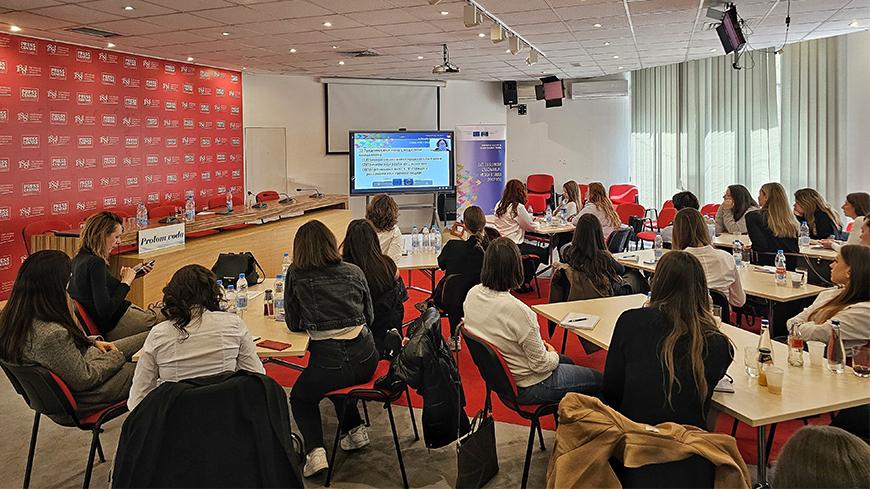Recognising the media’s powerful role in either reinforcing or challenging gender stereotypes, the Council of Europe, in cooperation with the Journalists’ Association of Serbia (UNS), held a workshop in Belgrade to equip young journalists and journalism students with the tools to report through a gender-sensitive lens.
In an era where digital content travels fast and narratives quickly take root, responsible journalism is more important than ever. Gender-sensitive reporting is not just about avoiding harmful stereotypes but promoting fairness, inclusion, and human rights.
Participants explored real-life examples of media reporting, examined the implications of biased narratives, and discussed ethical standards and editorial practices that foster gender equality. They also reviewed the European standards on gender equality and media, which underline that genuine democracy requires equal participation of women and men in public discourse—including in media representation.
With over 900 aspiring journalists trained in the past decade through its journalism school, UNS continues to serve as a key partner in promoting quality journalism in Serbia. This latest initiative builds on that foundation, helping shape a new generation of media professionals who can challenge outdated portrayals and ensure that everyone’s voice is heard fairly and accurately.
The event was organised under the action “Protecting freedom of expression and of the media in Serbia (PROFREX)”, implemented by the Division for Co-operation on Freedom of Expression, under the joint European Union and the Council of Europe programme “Horizontal Facility for the Western Balkans and Türkiye”.




